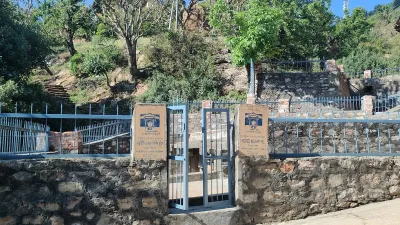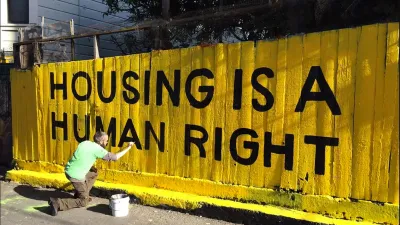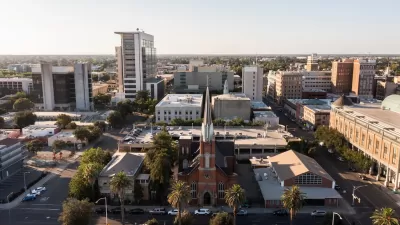In recent blogs I have written about places and plans in many different locales and through time. Students often ask, “do I need to visit places to know about them”?
In recent blogs I have written about places and plans in many different locales and through time. Students often ask, "do I need to visit places to know about them"? My answer is typically no, that a brief visit can be worse than no visit, as one is potentially locked in the tourist gaze, and reading multiple works on a place can provide a really good sense of the locale. The field of history relies on people learning remotely; it is possible to do this with geography while also keeping your personal carbon footprint low.
Some people feel travel will help them get into graduate school. Foreign travel, particularly in high school or as an undergraduate, is one of the class of experiences that I call a characteristic, not an achievement. Achievements are key in gaining admission. Foreign travel early in life typically reflects features of your environment. For example, it often shows that your family is educated, affluent, and in good health--so they do not need financial and personal support from you and there may be an expectation of travel. It may also indicate that you are from a family of immigrants and you have relatives to visit. Alternatively, your school teachers, college, or faith community may have been energetic in arranging excursions for foreign language training, service projects, and the like.
Being situated so that you do travel can certainly lead to self reflection, new knowledge, political insights, and such, which are achievements. If you want to work overseas, some substantial experience can be useful. In the U.S. the Peace Corps is available, for example (though in many other countries such programs target the highly experienced only, so this is not something to be expected outside the U.S). But significant reflection and knowledge about places and plans can also be spurred by reading Salman Rushdie or Jane Jacobs (among others of course!), becoming active in supporting an international aid group, and working in a regular job. There are many terrific groups that do important work abroad and that can use your support (a great use for some of the funds you might use for travel). Reading about them can increase your knowledge about places. There are some wonderful blogs, internet sites, and publications that can help you understand places and plans. I have highlighted many such sources in earlier posts. Current favorites include:
- Squattercity blog by Robert Neuwirth dealing with squatters around the world:http://squattercity.blogspot.com/
- Gapminder, "unveiling the beauty of statistics" with wonderful interactive charts and nicely produced videos: http://www.gapminder.org/
- International Institute for Environment and Development that has a terrific publications list, many free: http://www.iied.org/pubs/
- Charity Navigator, with reviews of charities and aid organizations: http://www.charitynavigator.org/
Overall, reading, imagery, internet sources, and talking with people are really viable ways of learning about places, plans, and processes. Learning about planning history, the focus of many of my blog entries this year, requires such sources.
I have been writing about planning history and have provided blogs about plans and places; a process blog is coming up! Thanks to Amanda Wilson, a graduate student at Cornell, for very helpful comments on this blog.

Planetizen Federal Action Tracker
A weekly monitor of how Trump’s orders and actions are impacting planners and planning in America.

Map: Where Senate Republicans Want to Sell Your Public Lands
For public land advocates, the Senate Republicans’ proposal to sell millions of acres of public land in the West is “the biggest fight of their careers.”

Restaurant Patios Were a Pandemic Win — Why Were They so Hard to Keep?
Social distancing requirements and changes in travel patterns prompted cities to pilot new uses for street and sidewalk space. Then it got complicated.

DC Area County Eliminates Bus Fares
Montgomery County joins a growing trend of making transit free.

Platform Pilsner: Vancouver Transit Agency Releases... a Beer?
TransLink will receive a portion of every sale of the four-pack.

Toronto Weighs Cheaper Transit, Parking Hikes for Major Events
Special event rates would take effect during large festivals, sports games and concerts to ‘discourage driving, manage congestion and free up space for transit.”
Urban Design for Planners 1: Software Tools
This six-course series explores essential urban design concepts using open source software and equips planners with the tools they need to participate fully in the urban design process.
Planning for Universal Design
Learn the tools for implementing Universal Design in planning regulations.
Heyer Gruel & Associates PA
JM Goldson LLC
Custer County Colorado
City of Camden Redevelopment Agency
City of Astoria
Transportation Research & Education Center (TREC) at Portland State University
Camden Redevelopment Agency
City of Claremont
Municipality of Princeton (NJ)






























